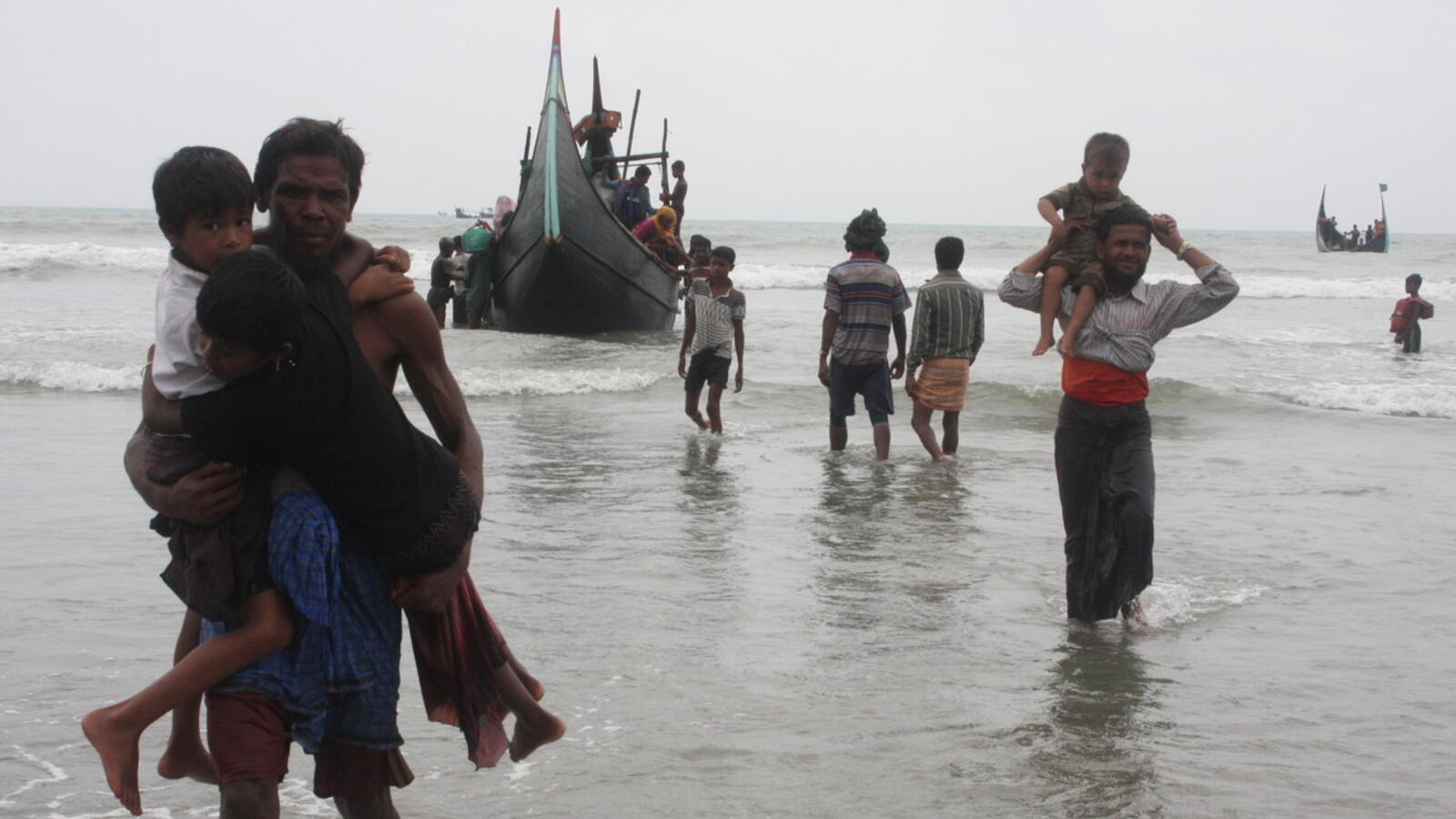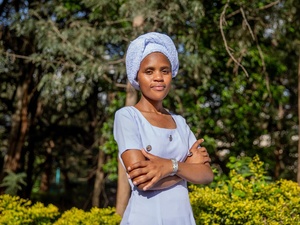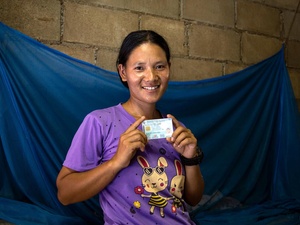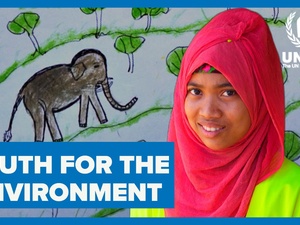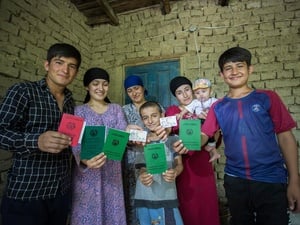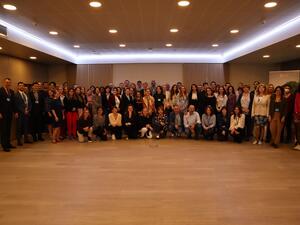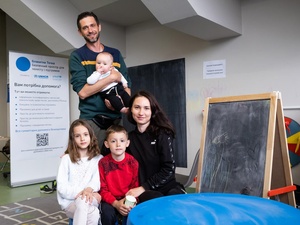Rohingya take to the sea in search of safety in Bangladesh
Rohingya take to the sea in search of safety in Bangladesh

A Rohingya man carries an infant born while his family was hiding in the jungle after fleeing violence in Myanmar's northern Rakhine state. The family braved rough seas in the Bay of Bengal to reach the Teknaf area of south-eastern Bangladesh.
SHAMLAPUR, Bangladesh – He is too young to have a name but has already suffered more than most people do in a lifetime.
Baby X was born nine days ago just after his family lost everything they owned. “They burnt our house and drove us out by shooting. We walked for three days through the jungle. That’s where he was born,” said his father Mohamed, gesturing to the puckered bundle of life.
The family of seven is among an estimated 164,000 people who have fled Myanmar’s northern Rakhine state since violence broke out there on August 25.
“They burnt our house and drove us out by shooting. We walked for three days through the jungle.”
They waited for a night on the Myanmar border before taking a fishing boat to Bangladesh, braving a five-hour voyage through rough seas in the Bay of Bengal.
Hundreds, perhaps thousands of others have landed on the beaches of Teknaf in south-eastern Bangladesh in the last few days. Curve-tailed boats that usually carry fish have been taking these refugees to safety for a fee. Passengers pay between 5,000 and 10,000 Bangladeshi taka (US$60-122) per person.
Refugees say that those who cannot pay are held by the boat owner until their relatives pay up or the police intervene.
The Teknaf shore is studded with such fishing boats. They pull up close and drop their human cargo in waist-deep water. Exhausted after the long and bumpy journey, they find the last burst of energy to wade to shore holding up children and the elderly. Some collapse on the beach, depleted. Others smile with relief that they have finally made it to safety.
Hafez Mohammed, 45, arrived with his family of 10. They were one of the better-equipped ones, lugging pots, rice and mats with them.
“There are many more waiting for boats,” he said of the Myanmar port he left. “It would take a month to bring them all.”
The Rohingya are a stateless Muslim minority in Myanmar. As a consequence they have faced discrimination and extreme poverty for decades.
Children, women and families are leaving their homes and everything they own behind, and walking on long, exhausting journeys in uncertainty seeking safety in strained Bangladesh refugee camps. They are hungry, in poor physical condition and in need of life-saving support after their terrible ordeal.
“There are many more waiting for boats. It would take a month to bring them all.”
Most spend the night in the nearby village of Shamlapur, which has hosted many Rohingya refugees since the late 1970s. A local leader named Shahid estimates that more than 10,000 have arrived in his village alone within days
From here, they call whatever relatives they may have in Bangladesh. Those with no ties move on in search of assistance – to existing refugee camps like Kutupalong or makeshift sites like Balukhali some 15 km away.
They are not done with walking yet. But at least tonight, they know they can sleep in peace.
UNHCR, the UN Refugee Agency, is working on the ground with its partners to provide them with protection, lifesaving aid like shelter, food, water and healthcare. It is calling for the registration of all refugees upon arrival, to allow all those in need to access necessary services.


